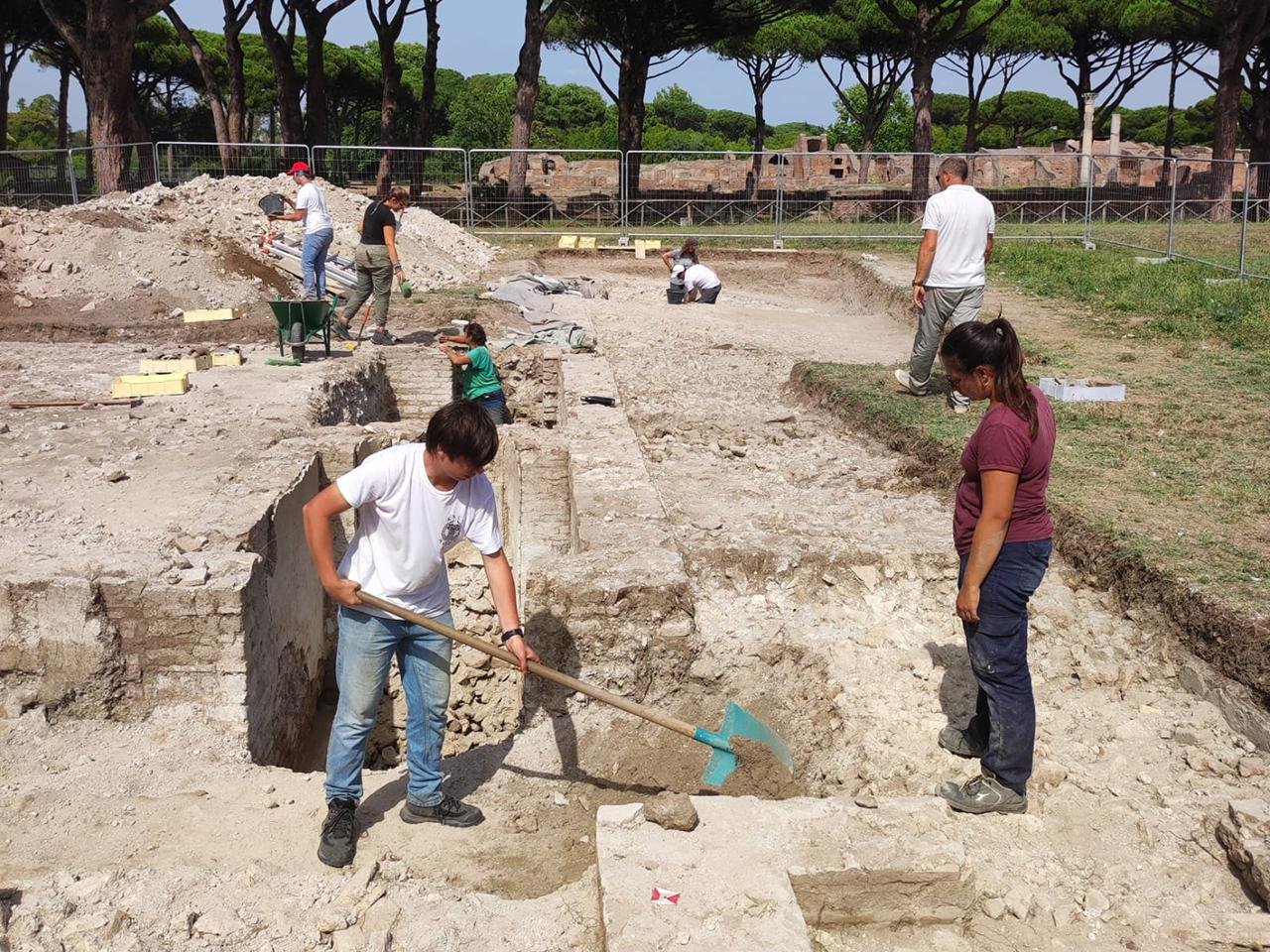Archaeologists in Ostia Antica, the ancient port city near Rome, have made an amazing discovery—a Mikveh, a Jewish ritual bath, from the late 4th or early 5th century CE. This is a new discovery about the long-standing Jewish community in Ostia, and it’s the oldest Mikveh outside of Israel.
 Excavation uncovers a large, luxurious Roman domus. Credit: Ostia Antica Archaeological Park
Excavation uncovers a large, luxurious Roman domus. Credit: Ostia Antica Archaeological Park
The excavation was led by the University of Catania in collaboration with the Ostia Antica Archaeological Park. The team expected to find commercial structures like warehouses or a river port. Instead, they found a large, luxurious Roman domus (house) with black and white mosaics, frescoes, a kitchen, latrines, two ovens, and a small immersion pool now identified as a Mikveh.
The Mikveh was built in a semi-underground rectangular room, closed on all sides and featuring a semicircular apse. Access was via a three-step staircase down to a brick floor. The bath had a well made of cement and later reinforced with bricks. It fulfilled the traditional Mikveh requirements: a fresh water source, likely supplied by a conduit and collected groundwater. A key piece of evidence that proved the bath was Jewish was the oil lamp with a menorah and a lulav (palm branch) found at the bottom of the Mikveh.
“This is an extraordinary discovery,” said Alessandro D’Alessio, Director of the Ostia Antica Archaeological Park. “No Roman mikveh were previously known outside of ancient Judea, Galilee, and Idumea. This confirms the extent of the continuous presence, role, and importance of the Jewish community in Ostia throughout the Imperial Age.”
 Steps down into the well of the mikveh. Credit: Ostia Antica Archaeological Park
Steps down into the well of the mikveh. Credit: Ostia Antica Archaeological Park
Jews have been present in Ostia since at least the 1st century CE. Epigraphic evidence, including funerary inscriptions, attests to a Jewish community in the port city during this period. One of the oldest synagogues in the Roman world was discovered in Ostia in 1961. This synagogue was built in the 2nd century CE, rebuilt in 443 CE after an earthquake, and used until the city declined in the 6th century.
Professor Luigi Maria Caliò, of the University of Catania, who led the excavation, said the Mikveh was found during the first excavation in this area in decades. The domus in which the bath is situated was used until the 6th century before it was abandoned.
Plans are already being made to incorporate the Mikveh into future cultural and historical projects at Ostia Antica. Excavations will resume in June, and the archaeologists hope more findings will come to light.





